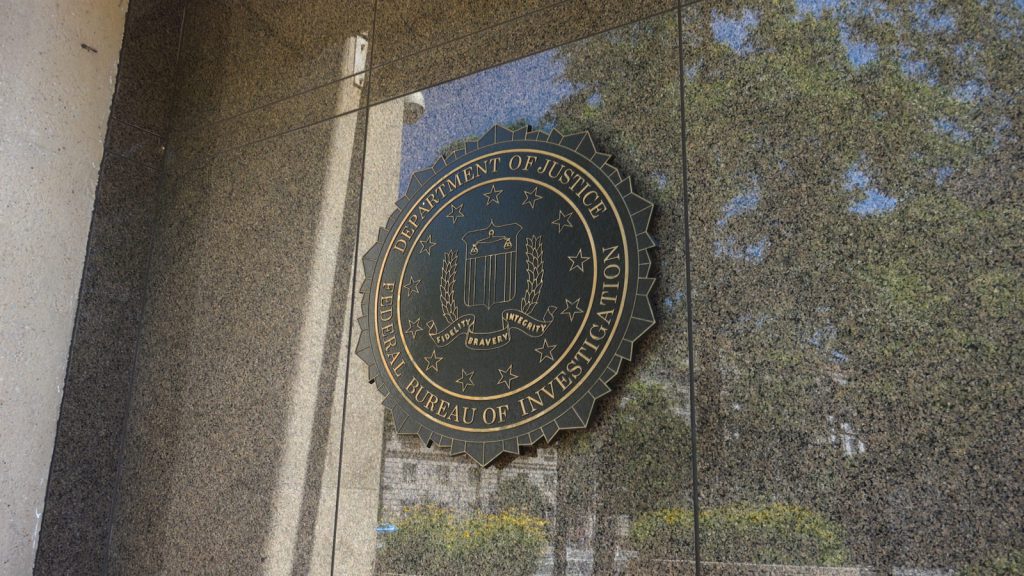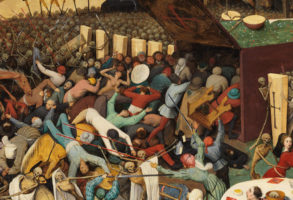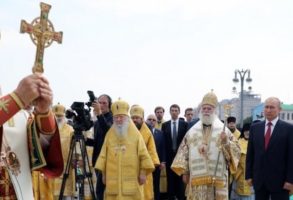
Published May 21, 2018
We Americans have a habit of putting fundamental social and political questions out of our minds by turning them into technical legal questions. This tendency is one of the forces at work in the increasingly dramatic showdown between the Department of Justice and the President of the United States.
There is certainly a set of discrete technical legal questions at the heart of that showdown, of course. These have become increasingly difficult to understand, and I recommend seeking out a knowledgeable and level-headed expert analyst whose lead you might follow on that front. Andy McCarthy should be first on your list.
But there is more going on, and as the drama proceeds we should keep in mind the deeper questions it should force us to confront regarding the state of our governing institutions and political culture. They are depressing questions, but important ones.
My sense of the basic facts at issue is that the president’s defenders and his critics are each right about different things. It looks reasonably likely to me at this point that the following five claims are all basically true:
- The FBI investigation into the Trump campaign began on flimsy foundations, and quite possibly improper ones, and was at least at first carried out by some people who openly expressed disdain for Donald Trump.
- The answer to the original question driving the investigation—was there criminal collusion between the Trump campaign and Russia?—is pretty much “no.”
- The investigation has been undermined, impeded, and obstructed by Trump and those around him, including through demands by the president for personal loyalty from law-enforcement officials and firing or causing the dismissal of a director and deputy director of the FBI.
- This has led the investigation to increasingly focus on the question of obstruction itself, and therefore to become an investigation about itself. The investigation seems likely to arrive at the conclusion that it has been obstructed.
- At the same time, the investigation has also expanded to consider other compelling evidence of wrongdoing by people associated with Trump and his 2016 campaign revealed in the course of the narrower investigation and its extension into the obstruction question.
If all of these things are more or less true, then Trump’s defenders and Trump’s critics each have a very strong case to make about some significant wrongdoing by the other side. Trump’s defenders can say this investigation began on grounds that seem invalid, while his critics can say that the investigation has been uncovering wrongdoing that seems serious.
And since each side takes its case to overwhelm the other’s, each can make a plausible claim that the real scandal is the other’s conduct. Each can make this case in a way that is genuinely persuasive to its own partisans, and not purely cynical. And that means that there is no way out of this for the country that will not seem to one side or the other like a politicized sham.
It’s also not hard to understand some of the resentment of the two groups of people accused of wrongdoing here.
On the one hand, the FBI found itself in an awful bind in 2016, confronted with evidence of illegality and potential national-security risks involving both of the major-party nominees in a presidential election. These were, moreover, two nominees who were among the most personally corrupt people in American public life, each of whom had spent a long career enveloped in creepy, barely legal family enterprises and trailed by a fetid entourage of crude and colorful petty racketeers. Both had done some particularly awful things (like Hillary Clinton shamelessly defaming vulnerable women victimized by her husband and Donald Trump cynically defrauding vulnerable people drawn to his various schemes and scams) and both had more generally behaved in ways that gave credence to even otherwise bizarre and implausible suspicions about their conduct and that of the people around them. Neither had any business being anywhere near the presidency.
However the FBI proceeded regarding the vague and uncertain evidence it possessed about both of them—whether ignoring it or pursuing it, making its investigations public or keeping them under wraps, and it did all these things at different times—it would face political backlash and risk unduly influencing a presidential election. There was probably no way to come out of it without corrupting the FBI as an institution. That doesn’t mean the agency’s every decision was right or defensible, only that it isn’t hard to understand the frustration of the people who chose wrong paths when there were no right paths to follow. They faced a form of the same no-win situation the last election presented to the country at large.
On the other hand, both of those presidential candidates do in fact seem to have been mistreated by the resulting investigations, and their defenders have a lot to complain about. Trump’s victory has meant, ironically, that he has been the one who has continued to be mistreated by a continuing investigation and so has ended up with more to complain about. His defenders are not wrong to be outraged by evidence of outright politicized hostility toward him by some of the investigators early on in the process, nor are they wrong to complain about the seemingly unbounded and capricious scope of the investigation since.
Like everyone else in America, Trump’s defenders are done a disservice by the man’s own behavior and character. But although his curious combination of terrifying narcissism and disgusting self-pity makes it hard to sympathize with him, it does not excuse abuses of power and corruptions of investigative authority directed against him. The excuses may be worse than the abuses in the final analysis. The man was elected President of the United States, and it is hard to avoid the impression that large segments of our political culture are trying to pass off efforts to invalidate that election as though they were just an earnest search for truth and justice.
That everybody has a point is really not great news. Each side is making, in its way, an argument about the corruption of our institutions of self-government, and if all were right then the evidence for such corruption would be all the greater. The dynamics created by the resulting standoff seem likely only to further corrupt those same institutions. The only responsible way forward for everyone involved is to do their jobs within the institutions they inhabit, groping for integrity where it could possibly be found, and hope that helps to lend some legitimacy to what results. Our institutions are certainly not altogether corrupted. Far from it. And some have stood strong in this period.
But they are on the whole weakened and under threat. The impossible choice we faced in 2016 was at least as much a result of that as a cause of it. Donald Trump did not create this problem for our country, though he is obviously making it worse, but the era he has come to symbolize seems destined to embody the problem. We will get through it, and can come out stronger, if we recognize that what we’re seeing is not a clean and simple battle between the just and unjust but a self-destructive turmoil created by the corrosion of the institutions throughout our society that ought to give our common life its form and character. That means that renewal will require a revitalized commitment to institutional integrity—and not just by the other guy.
— Yuval Levin is the editor of National Affairs and a fellow at the Ethics and Public Policy Center.








